Southeast Insurance Dispute Attorneys Explain Bad Faith Practices
The rights of Florida, Louisiana, and Alabama property owners when insurance companies act in bad faith
You pay good money for the insurance policies you purchased. Many homeowners, businesses, and churches go years or even a lifetime without making a claim for damage to their home or buildings. When you do make a claim, you have the right to expect the insurance company will honor it by promptly investigating your claim, evaluating all your damages, and paying full value. When companies deny payment on false grounds, try to stall to force a lower settlement, or fail to negotiate fairly, you DO have the right to hold the insurance carrier liable for bad faith.
At Warhurst Law, our founder, attorney Gene Warhurst, understands how insurance should work because he worked as a claims adjuster before becoming a lawyer. It is this unique perspective that informs and guides how our team does business throughout the Southeast. Contact us today in Mobile if you believe you have been a victim of bad faith tactics.
Florida bad faith insurance law
Florida law requires that insurance companies act in good faith. Specifically, the Florida Insurance Code provides, in Section 624.155 1 (b), that the insured can file a civil action against an insurer for:
- “Not attempting in good faith to settle claims when, under all the circumstances, it could and should have done so, had it acted fairly and honestly toward its insured and with due regard for her or his interests
- …Failing to promptly settle claims, when the obligation to settle a claim has become reasonably clear, under one portion of the insurance policy coverage in order to influence settlements under other portions of the insurance policy coverage.”
In addition, Florida has adopted the Unfair Claims Settlement Practices Act (UCSPA). The UCPSA generally regulates what insurance companies should do to meet good faith standards and what acts constitute bad faith.
There are also many Florida court decisions that control when an insured can file a bad faith claim and what damages are allowed.
Alabama bad faith property insurance law
Alabama law also provides authority for bad faith claims, based on court decisions, if the following conditions are met:
- There is an insurance contract.
- The insurance company wrongfully denies the insurance claim – in whole or in part.
- The denial is not based on any reasonable grounds and the insurance carrier has actual knowledge that no reasonable grounds for denial exist.
While Alabama has not adopted the UCSPA, it does have statutory regulations for the standards insurance companies should follow when processing claims. These standards include timelines for responding to a claim. The standards also require that the insurance carrier shouldn’t make a false statement to pressure the policyholder to sign a release, should pay the amount due within 30 days after an agreement is reached, and many other provisions.
Louisiana bad faith property insurance law
Louisiana has its own laws regarding bad faith insurance claims, as laid out in Revised Statute 22:1892 and Revised Statute 22:1973. To make a bad faith claim, you must prove the following elements:
- You provided your insurance company with proof of loss and damages to notify them of your claim
- Your insurance company failed to pay you within the required time period
- Their failure to pay was without cause or arbitrary
With a successful bad faith claim, you may be eligible for additional punitive damages on top of reimbursement for your losses. Louisiana utilizes the Unfair Claims Settlement Practices Act (UCSPA), which lays out good and bad faith standards for insurance companies.
Acts of good faith
Examples of good faith responses to insurance claims for property damage include:
- Promptly investigating the insurance claim
- Making an honest evaluation of the claim
- Honestly interpreting the contract provisions
- Making a timely settlement
- Properly evaluating the evidence
- Making a fair evaluation of the damage and repair costs
Examples of bad faith insurance negotiation
Some of the bad faith tactics have to do with delaying settlement to force you to take less money. Other tactics include taking false legal positions or asserting false facts. Some of the many types of bad faith strategies we pursue insurance companies over include:
- Not investigating the claim or delaying the investigation
- Denying coverage without justification
- Trying to shift the blame to another insurance carrier
- Claiming that premium payments weren’t made when they were due
- Not recognizing all the damage issues that were contracted for including temporary lodging
- Refusing requests for documentation
- Shifting the claim to multiple adjusters
- Telling the client to sign a release before all damage issues are addressed
- Claiming exclusions apply when they don’t
- Refusing to pay valid claims
- Not paying for replacement value if replacement value is due under the contract
- Making lowball offers
- Misrepresenting the facts
- Threatening prosecution which isn’t justified
- Failing to offer a reasonable explanation of a denial in writing
- Making unreasonable requests for information
Damages in bad faith claims
The exact damage awards differ from state to state. Still, insurance companies found liable for bad faith, usually must pay:
- The value of the claim. This includes all the damages due under the insurance contract. Importantly, the insured may be entitled to demand the full value – even if the value exceeds the policy limits. Making insurance companies pay more than the policy limits is one of the strongest deterrents to bad faith negotiations there is.
- Legal fees, interest, and costs. We demand that the insurance company pay legal fees, interest on the amount of the basic claim, and court costs. These damages are also known as “consequential damages.”
- Emotional distress. It may be possible depending on the insurance carrier’s conduct to claim mental distress damages.
- Punitive damages. This is an award payable to the insured. Punitive damages are meant to punish the insurance company for its bad faith conduct – so that it doesn’t use bad faith tactics for any future insurance claims.
Insurance dispute lawyers serving Florida, Alabama, Louisiana and the Southeast
When insurance companies are behaving badly, you can hold them accountable. Make the call to an experienced insurance lawyer today. To make an appointment for a consultation, call 251-694-1932 or complete our contact form. We file, negotiate, and litigate a broad range of insurance claims. We represent clients across the Southeast including the Florida Panhandle, the Gulf Coast, and Mobile, Alabama.
* Warhurst Law cannot and does not guarantee an outcome to any case.

